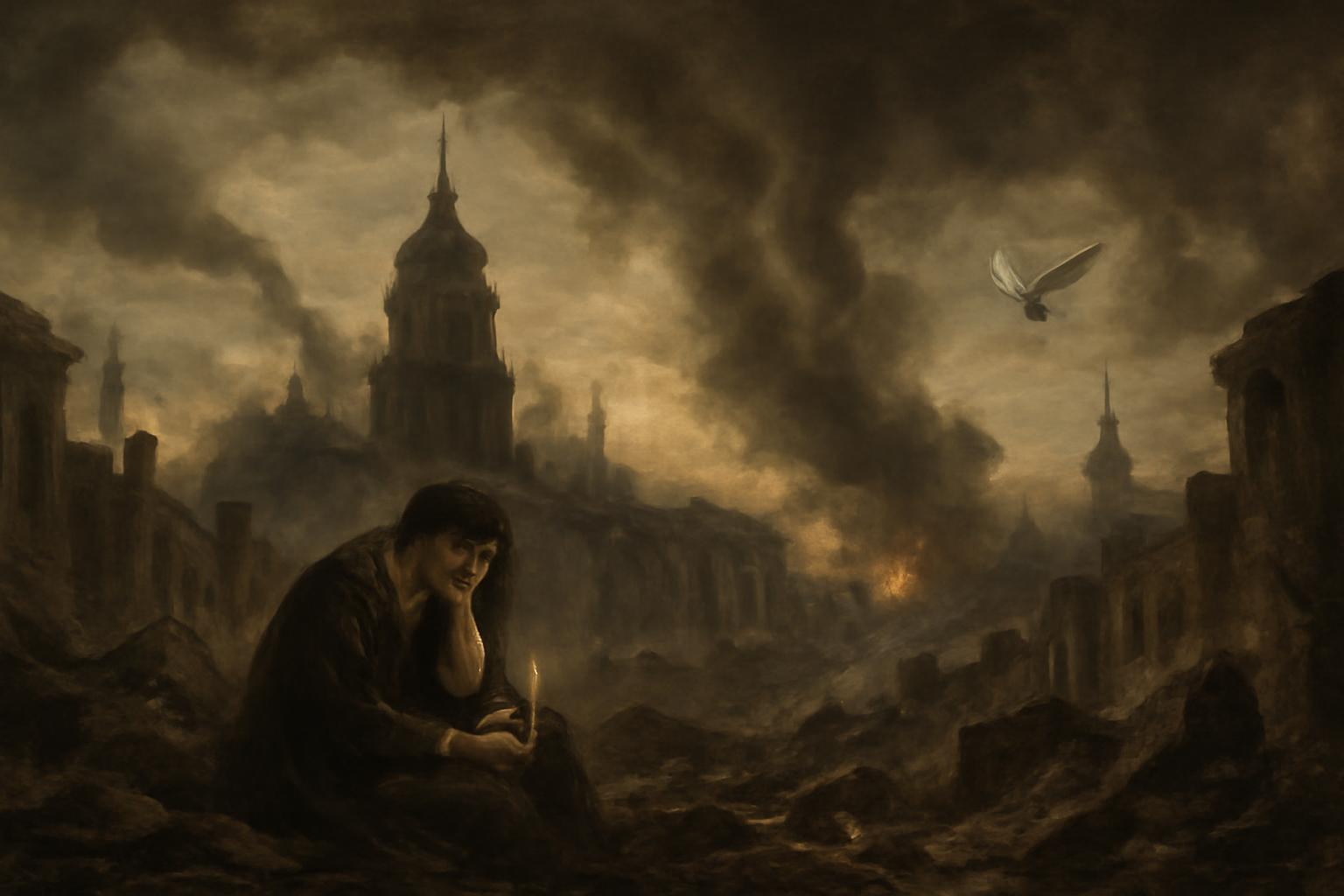What remains of us when the sirens imitate the closing of a tomb and the very air trembles with the memory of a blast? In Kyiv, the day repeats itself like an antique tragedy: homes unmade, lives unspoken, rescue teams in red suits delving into the wreckage while waiting for news of the missing, a brother perhaps among the ruined rooms. A woman clings to a fragile flame of hope as a window—one of the apartments torn from its frame—stands among the debris as if it had learned how to endure silence. The rubble is not merely stone; it is the stubborn chorus of a city that would not yield to history’s dull monotone.
The afternoon air-raid alerts return as if the clock of the world refuses to forget what fear sounds like. Voices in interviews speak of negotiations as perhaps meaningful, yet the dread that a lasting peace remains distant—indeed unlikely—lingers like smoke after a fire that refuses to die down. On August twenty-third Moscow shrugged away an unconditional meeting with Kyiv, while the man at the largest helm seems more attentive to distant rivals than to the near houses that tremble under the sky. Putin’s attention drifted toward the United States, and Europe’s ministers converse among sanctions and resilience as if the loom of fate could be rewoven with the plain thread of policy. An elderly grandmother in Germany lifts her voice to the politicians, not with the rhetoric of banners but with the sorrowful insistence that real purpose be pursued, and that freezing a conflict would be but postponement of a larger reckoning—a postponement that may give rise to future upheaval.
What shall we say of such a moment, except that it is a city in the theater of a Greek tragedy where the gods have withdrawn and mortals improvise their fate with tremulous hands? Nietzsche would hear in this the music of the abyss—not the extravagant sophistry of progress, but the stark music that warns: the will to power, when untethered from transcendence or humility, becomes a gleaming weapon against the living. We watch a spectacle of states and diplomats, yet the true drama is the human ruin behind the headlines: the childless windows, the scorched entrances, the corridors where belongings are now only memories with a price tag. The West, polished by the rhetoric of civilization, reveals in such hours its own melancholy: a culture that prides itself on mastery of technique yet trembles before the weight of consequence, a civilization that speaks of liberty while forgetting what it owes to the quiet dead.
We are asked to endure; we are asked to choose between cold calculation and the ache of solidarity. The philosophy of pessimism—that the bright arc of happiness is not guaranteed—offers its most severe counsel: to endure is to resist oblivion, to recall is to resist tyranny, to remember the violated window as a warning and as a duty. If we forget, the stage resets for another act of ruin. If we remember, we might yet summon a courage that modernity despises: not the vainglorious triumph of power, but the stubborn fidelity to the fragile remains of human life and meaning.
